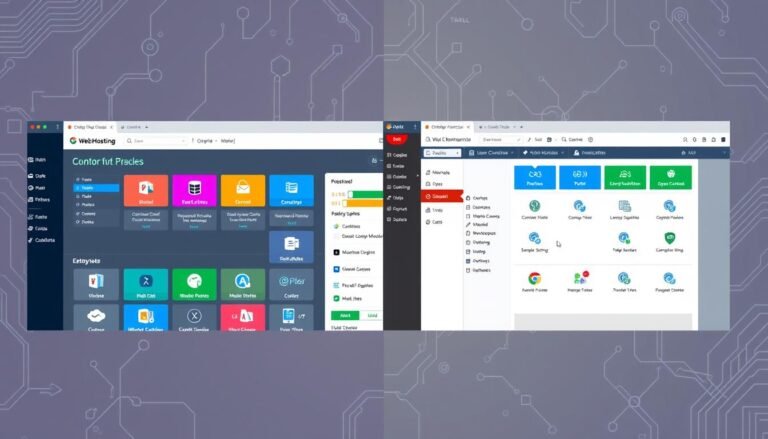How To Choose The Best Budget Web Hosting In 2025?
In 2025, launching a website is more accessible than ever, thanks to the evolution of budget web hosting solutions. Whether you’re starting a blog, a personal portfolio, or an e-commerce store, choosing the right hosting service is critical to performance, reliability, and cost-efficiency. However, with so many options available, making the right choice can be overwhelming.
This guide breaks down everything you need to know about selecting the best budget web hosting provider in 2025, including the features to look for, current market leaders, pricing comparisons, and expert tips.
What Is Budget Web Hosting?
Definition
Budget web hosting refers to affordable hosting plans designed for small to medium websites. These plans typically offer shared server space, making them cheaper than VPS or dedicated hosting.
Who Needs Budget Hosting?
- Beginners launching their first website
- Bloggers and content creators
- Small businesses and startups
- Freelancers and portfolio sites
Key Features To Look For In Budget Hosting
1. Uptime Guarantee
Look for at least a 99.9% uptime guarantee. Uptime is crucial for keeping your website available to visitors 24/7.
2. Speed and Performance

Even budget hosting should provide fast loading times. Check for:
- SSD storage
- CDN (Content Delivery Network) support
- Optimized server locations
3. Customer Support
Responsive support is essential, especially if you’re not technically inclined. Choose providers offering:
- 24/7 live chat or phone support
- Comprehensive knowledge base
4. Security Features
Ensure your hosting plan includes:
- Free SSL certificates
- Daily or weekly backups
- Malware protection
5. Scalability
Pick a host that allows you to easily upgrade your plan as your website grows.
6. User-Friendly Control Panel
A simple interface like cPanel or a custom dashboard helps you manage your site more easily.
7. Freebies
Many budget hosts offer perks like:
- Free domain for the first year
- One-click WordPress installs
- Email hosting
Top Budget Web Hosting Providers in 2025
1. Bluehost
Overview
Bluehost remains a favorite in 2025 for its balance of price, performance, and features.
Key Features
- Free domain for 1 year
- Free SSL and CDN
- 1-click WordPress installation
- 24/7 customer support
Pricing
Starts at $2.95/month
2. Hostinger
Overview
Known for ultra-affordable pricing, Hostinger offers impressive speed and reliability.
Key Features
- SSD storage and LiteSpeed servers
- Weekly backups
- Custom control panel
Pricing
Starts at $1.99/month
3. SiteGround
Overview
SiteGround stands out for its exceptional customer service and advanced security features.
Key Features
- AI-based security
- Free daily backups
- Ultra-fast site loading
Pricing
Starts at $3.99/month
4. GreenGeeks
Overview
An eco-friendly hosting provider with solid performance.
Key Features
- Renewable energy match
- Free domain, SSL, and nightly backups
- Built-in caching
Pricing
Starts at $2.95/month
5. DreamHost
Overview
DreamHost offers a beginner-friendly experience and a 97-day money-back guarantee.
Key Features
- Unlimited traffic
- Automated WordPress migrations
- Free WHOIS privacy
Pricing
Starts at $2.59/month
How To Compare Hosting Plans
Step 1: Identify Your Needs
- Expected traffic
- Type of website (blog, e-commerce, portfolio)
- Required features (e.g., email, storage space)
Step 2: Analyze Pricing vs Value
Cheapest isn’t always best. Ensure you’re getting essential features even at a low cost.
Step 3: Read User Reviews

Look at customer feedback for insights into real-world performance and support quality.
Step 4: Test Customer Support
Reach out to the provider with a few questions to assess response time and helpfulness.
Step 5: Check Renewal Rates
Introductory pricing can be attractive, but renewal costs may be much higher.
Pros and Cons of Budget Web Hosting
Pros
- Affordable for individuals and small businesses
- Easy to use with one-click tools
- Sufficient for low to medium traffic sites
Cons
- Shared resources may lead to slower performance
- Limited scalability for high-traffic needs
- Basic security and fewer premium features
When To Upgrade From Budget Hosting
You should consider upgrading if:
- Your website experiences high traffic
- You need faster load times and more storage
- You require advanced security and performance features
Options for upgrading include:
- VPS Hosting
- Managed WordPress Hosting
- Dedicated Servers
Tips for Maximizing Budget Hosting
- Use caching plugins to speed up performance
- Optimize images and scripts for faster load times
- Regularly back up your site
- Monitor website uptime and downtime
Common Mistakes To Avoid
- Ignoring renewal pricing
- Overlooking support quality
- Choosing based on price alone
- Not reading terms and refund policies
Also Read: The Ultimate Guide To Managed Hosting For Startups
Conclusion
Choosing the best budget web hosting in 2025 requires a careful balance of cost, performance, and features. Whether you’re just starting out or managing a small site, a reliable hosting provider can make a huge difference in your online success. By focusing on uptime, support, security, and scalability, you can find a plan that meets your needs without breaking the bank.
Take your time, compare providers, read reviews, and test support—your future website deserves a stable foundation.
FAQs
1. What is the cheapest web hosting service in 2025?
Hostinger remains one of the most affordable and reliable options with plans starting at $1.99/month.
2. Can I host an e-commerce site on budget hosting?
Yes, but ensure the host supports your platform (e.g., WooCommerce) and offers SSL, backups, and decent speed.
3. Is free web hosting a good idea?
Free hosting often comes with limitations like ads, poor uptime, and little to no support. It’s not recommended for professional use.
4. Will my website be slow with budget hosting?
It can be if the provider oversells server space. Choose hosts known for performance, like SiteGround or Bluehost.
5. What happens if I outgrow my budget hosting plan?
Most providers offer easy upgrade paths to VPS, cloud, or dedicated hosting. Always check scalability options before signing up.







